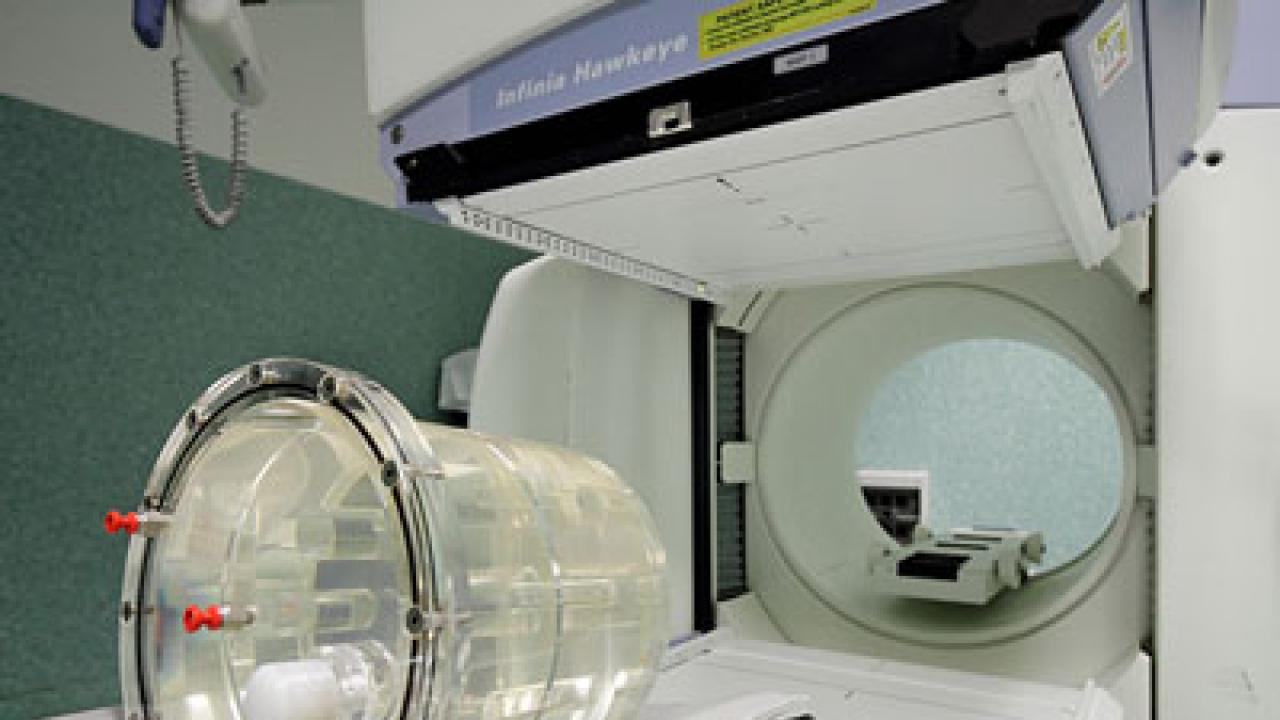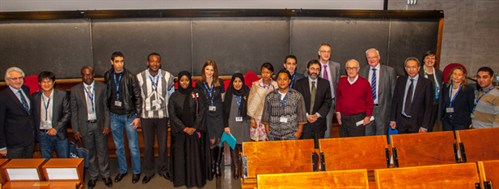
ICTP officially inaugurated its new Master's in Medical Physics degree programme at a ceremony on 5 February 2014 in its Main Lecture Hall.
The two-year Master's Programme, run jointly by ICTP and the University of Trieste and supported by the World Academy of Sciences (TWAS), is designed to provide graduates of physics or related fields (mainly from developing countries) with postgraduate theoretical and clinical training so that they may be recognised as clinical medical physicists in their home countries. The inaugural class has attracted 13 students from 11 developing countries.
The speakers at the inauguration ceremony included ICTP Director Fernando Quevedo, along with Antonella Grim, representing the Mayor of Trieste; Igor Dolenc, Vice President, Province of Trieste; Maurizio Fermeglia, Rector, University of Trieste; Rethy Chhem, Director, Division of Human Health, International Atomic Energy Agency; and Peter Sharp, President, European Federation of Organisations for Medical Physics.
Luciano Bertocchi, scientific consultant at ICTP and one of the driving forces behind the medical physics programme, says that formal master's level training in medical physics is almost non-existent in many developing countries. The students who are enrolled in the programme echo his view.
Melisa Nurkovic, from Montenegro, says that currently there are only three trained medical physicists in her country. "At the University of Montenegro there is no medical physics education programme, neither for undergraduate nor master studies," says Nurkovic. William Vladimir Oña Rodríguez from Ecuador says that while there are some undergraduate training programmes in Ecuador, there are no formal master's level programmes. Mohammed Bougtib from Morocco and Dang Quoc Soai from Vietnam both say that medical physics still has a long way to go in their countries.
Bertocchi points out that filling this gap is crucial because medical physicists play an integral part in treatment and diagnostic procedures for life threatening conditions such as cancer and are required to handle precision equipment like radiotherapy machines. Renata Longo, professor at the University of Trieste and one of the programme directors, says that the idea is not only to train the incoming students but also to equip them with skills that they can use to improve the medical physics culture back in their home countries.
The students will spend the first year in Trieste attending lectures at ICTP and the University, while the second year will be dedicated to clinical professional training in a medical physics department of a hospital in the programme's training network. More details can be found on the Masters' in Medical Physics web page.
| Below: Students and speakers at the official inauguration of ICTP's new Master's in Medical Physics programme |
 |
















